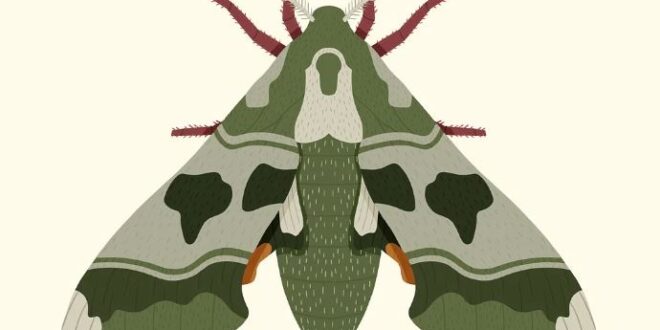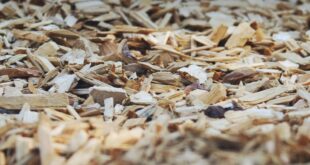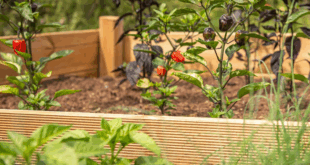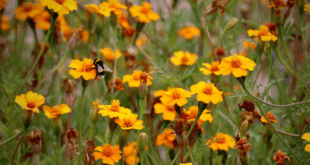Almost five times as many reports of the insect as in the same period last year
· Charity says there is a possibility of more generations than usual if we have a warm autumn
· The most common questions asked of the RHS Advisory team at this year’s RHS Chelsea Flower Show were about box tree moth
· Fig leaf roller and buddleia aphid also emerging as popular enquiries among RHS members
The Royal Horticultural Society (RHS) is predicting that it could be a bumper year for box tree caterpillars after receiving nearly five times as many reports of the insect in the first four months of 2024, compared to in the same period last year, with more than 1300 reports in the past fortnight alone. Additionally the most commonly asked question to the RHS Advisory team at this year’s RHS Chelsea Flower Show was about managing box tree caterpillar and finding suitable alternative to box plants. None of the gardens at this year’s show featured any box.
The surge in reports is very likely due to a mild winter followed by a warm spring which meant the caterpillars’ activity started earlier and if temperatures hold could see a further generation in the autumn.
Box tree caterpillars, native to East Asia, are the larvae of a moth that feed on box (Buxus) plants. The insect, which was first found in private gardens in the UK in 2011, is now widespread across the UK.
Insect growth and development is temperature dependant, with box tree caterpillars requiring a certain number of hours above a threshold temperature in order to ‘reawaken’. There are at least two generations of box tree caterpillar in a year, though can be up to four elsewhere in Europe, with the majority of damage caused between March and October.
However, if mild weather continues into autumn it is possible that there will be an additional generation, meaning more damage overall to box plants. As the caterpillars feed and grow their damage becomes increasingly noticeable. Their presence can be spotted via the small green pellets of frass (insect excrement) found under box; the partially, to entirely, eaten leaves; and the presence of webbing.
Dr Stephanie Bird, RHS Senior Entomologist, said: “Box growers now face this insect across the whole of the country. While box is a pretty resilient plant and can recover from even complete defoliation, this does weaken the plant and where desperate, hungry caterpillars can go on to strip the bark, girdling and killing sections. However, all is not lost as there are now known to be several naturally occurring enemies, including parasitoid wasps and a fly that can provide at least a low level of control. Gardeners may need to make tough decisions, considering which plants they love and want to retain versus replacing with an alternative where management is no longer practical.”
An ongoing trial at RHS Garden Wisley, Surrey, is investigating alternatives to box trees with a range of compact evergreen shrubs that can be clipped into formal hedging styles.
Growers of box that have not yet been affected are advised to deploy pheromone traps in order to help determine when the moths are present, in order to then look for and remove the caterpillars.
In 2023 the RHS Plant Health team also saw a surge of enquiries around fig leaf skeletoniser moth, whose larvae feed on fig leaves, grazing away the upper surfaces, or folding leaves over and binding with webbing in order to feed inside. In addition, there has been an upswing in observations of an as-of-yet unidentified aphid appearing on buddleia plants. The aphid, believed to be related to the black bean aphid species, feeds on the underside of young buddleia leaves, and the expanding leaves are crumpled, with pale spots on the upper side.
As the climate changes, the RHS monitors reports and enquiries from the UK’s gardeners to provide valuable insights into emerging patterns across the country. The charity is committed to becoming biodiversity positive by 2025 as set out in its 2021 Sustainability Strategy. To aid this, the RHS is encouraging gardeners to focus on the benefits of having a biodiverse garden and the contribution each species makes to a healthy ecosystem and the ways increased biodiversity can prevent any one species becoming too prevalent and causing serious damage to plants.
For more information on managing box tree moth and to report if you’ve seen it in your garden, visit the RHS webpage: https://www.rhs.org.uk/biodiversity/box-tree-caterpillar
 Gardeners Club The Gardeners Club is a free to join online club for everyone with an interest in gardening and gardens.
Gardeners Club The Gardeners Club is a free to join online club for everyone with an interest in gardening and gardens.






